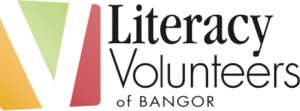Family Literacy: A Story With Two Endings
July 17, 2017 | Family Literacy, Community Partners, Reading
Jeremy grew up in rural Maine, in a town riddled with poverty. He quit school in 10th grade. His family needed help and so he went to work in his family’s business. Despite being a high school drop-out, he did fairly well as long as the family business survived. Lynn, his wife, had a similar background and with their children, they were content. Neither of them were strong readers. So when they struggled to understand paperwork, they asked Lynn’s sister for help. Having never been read to, they didn’t read to their children, even though the kids sometimes asked for stories.
When the children were still in elementary school, they started having trouble learning. Their teachers said they struggled with reading and didn’t seem to be very interested in school.
Jeremy and Lynn hadn’t liked school much either. Still, they wanted their kids to do better. Embarrassed by their own weak academic skills, they didn’t know how to help.
Which way will it go?
Here’s one ending for the story: Things continue to go downhill in school for the children. By the time they reach middle school, they’re struggling in every course, and behavior problems are one result. By high school, they’re talking about dropping out. Jeremy’s personal example works against all his arguments that they’ll be lost in today’s economy without an education.
Another possibility: Jeremy reaches deep inside for an extra dose of courage and sets his embarrassment aside. He finds the nearest Literacy Volunteers office and asks for help. He works hard with his tutor, and before long he’s reading better. He encourages Lynn to join him, and she gets a tutor, too.
It’s a proud moment when as a family they curl up on the sofa with their kids and read Where the Wild Things Are. Family reading becomes a regular feature of their lives. The children’s attitude toward reading, and school in general, improves because they see their parents engaged in reading and taking an active role in their schooling. Happy endings are in sight!
Addressing Adult Low Literacy
Improving adult literacy has a huge ripple effect on families. Literacy Volunteers agencies throughout Maine help improve local lives by working with
motivated adults to improve their English reading, writing, and speaking skills. Individual tutors are trained volunteers, meaning there is no cost to students. If you or anyone you know struggles with reading, Literacy Volunteers is an excellent solution.
Author Anita Kurth co-chairs the Communication Committee at Literacy Volunteers of Bangor.
Additional Resources
Literacy Volunteers of Bangor’s Website

